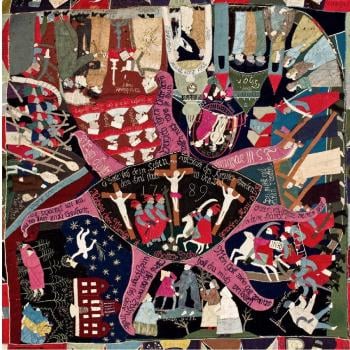You should note that Philippians 3 is rather confusing, linguistically speaking. Uncommon words appear, metaphors shift, referents are ambiguous, and direct objects go missing. What is it that Paul presses on to take hold of inasmuch as Christ has taken hold of him? What is the prize? Why shift from accounting analogies to racing analogies? What does he mean by forgetting the past and straining or stretching ahead?
Paul begins by declaring everything in his life as "loss" and "garbage" compared to "the surpassing worth of knowing Christ Jesus my Lord." Knowing Christ, parallel to the Old Testament ideal of "knowing God," implied an intimate friendship of love with God. As Saul the righteous Pharisee, Paul had thought such intimacy with God was secured through good deeds and religious zeal. Yet upon being confronted by Christ on that Damascus Road, he realized to his horror not only that his zealous good deeds were unnecessary, but that they actually paved a downhill road to perdition. Karl Barth insisted that intimacy with God does not result from our successful efforts at righteousness, but precisely from the collapse of such efforts as well as from recognizing the absolute necessity of that collapse.
It is only once our futile efforts fail that we as lost creatures can be finally found, as Paul writes he was in verse 9. Faith is an unconditional surrender to the unconditional love of Christ; faith emerges out of our failures, out of those desperate moments when "God, if you are there . . ." gets spoken by even the most doubting skeptic. Knowing Christ, verse 10, inextricably links us to redemptive suffering and death because it is only through suffering and death that resurrection comes. And it is only through resurrection that we finally become the people we already are in Christ.
Therefore Paul "forgets what is behind and strains toward what is ahead." He forgets both his past sinfulness (and all of his guilt) as well as his past benevolence (and all of his pride). He lets it all go in order to "live up to what he has already attained" (v. 16). "True perfection," wrote Gregory of Nyssa, "is not to avoid a wicked life out of servile fear of punishment—like slaves—nor to do good because we hope for rewards, as if cashing in on the virtuous life is some business-like or contractual arrangement. Instead, disregarding all those things for which we hope and have been promised, the only thing we dread is to fall from God's friendship, and the only thing we consider worthy of honor and desire is to become God's friend."
Paul's friendship with Christ energized his pressing on; it energized his striving and straining, his running and stretching forward. But what was the goal, the prize toward which all this striving pointed? The prize, Paul writes, is knowing Christ. But wait, wasn't knowing Christ Paul's starting point? How can it also be his finish line? Exactly! To know Christ only made Paul desire to know Christ more. It's what kept him running his metaphorical race—even though he'd already won! Gregory wrote,
The only limit of perfection is the fact that it has no limit. The apostle Paul, ever running the course of virtue, never ceased "straining toward those things that are still to come" . . . This truly is the intent of God, that you never be satisfied in the desire to know Him . . . even as more is being grasped, more is always being discovered. No limit interrupts growth in the ascent to God because Good has no limit. An increasing desire for God is never satisfied. . . . It is not one thing to seek and another to find, for the reward of the seeking is the seeking itself.
To make more sense of this, consider an analogy from marriage. During premarital counseling, I'll meet with engaged couples for whom walking down the aisle gets treated sometimes as something akin to crossing a finish line. All their dating and scheming and waiting and dreaming will find its fulfillment at last once they finally say "I do!" Everything will be fine as soon as they get married.
But those of you already married know how getting married is hardly the finish line as much as it is the starting line. Every couple thinks they know each other until they get married. In every newlywed's life comes that shock of realization when one morning you roll over, behold your beloved, and wonder, "Who are you?" Yet with love in ascendancy, such a wake-up is always a giddy-up. That's because the more you know, the more you can love, which only spurs you on to know even more. "The reward of the seeking is the seeking itself."
Of course with some marriages, as with any close relationship, there are moments when knowing more is knowing too much. Intimacy can foster disincentive rather than enticement, especially once your idealizations fade and your pedestals crumble. Selfishness sets in and your grand aim to love no matter what turns inward. You know what love requires and what Christ demands, you just don't want to do it. It feels too hard. Unchecked, such selfish resistance leads to resentment and estrangement—and not by accident.





